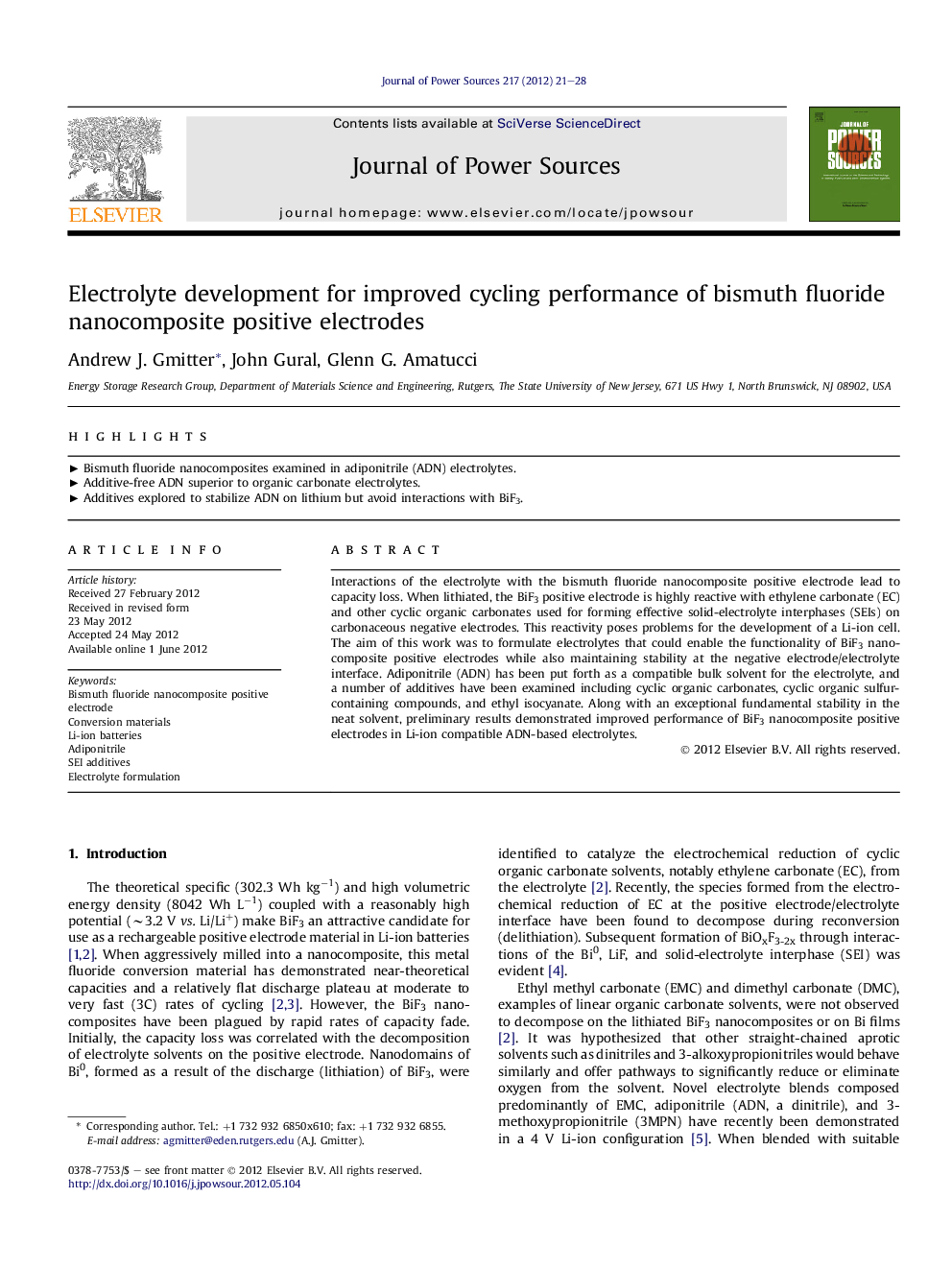| Article ID | Journal | Published Year | Pages | File Type |
|---|---|---|---|---|
| 1284450 | Journal of Power Sources | 2012 | 8 Pages |
Interactions of the electrolyte with the bismuth fluoride nanocomposite positive electrode lead to capacity loss. When lithiated, the BiF3 positive electrode is highly reactive with ethylene carbonate (EC) and other cyclic organic carbonates used for forming effective solid-electrolyte interphases (SEIs) on carbonaceous negative electrodes. This reactivity poses problems for the development of a Li-ion cell. The aim of this work was to formulate electrolytes that could enable the functionality of BiF3 nanocomposite positive electrodes while also maintaining stability at the negative electrode/electrolyte interface. Adiponitrile (ADN) has been put forth as a compatible bulk solvent for the electrolyte, and a number of additives have been examined including cyclic organic carbonates, cyclic organic sulfur-containing compounds, and ethyl isocyanate. Along with an exceptional fundamental stability in the neat solvent, preliminary results demonstrated improved performance of BiF3 nanocomposite positive electrodes in Li-ion compatible ADN-based electrolytes.
► Bismuth fluoride nanocomposites examined in adiponitrile (ADN) electrolytes. ► Additive-free ADN superior to organic carbonate electrolytes. ► Additives explored to stabilize ADN on lithium but avoid interactions with BiF3.
